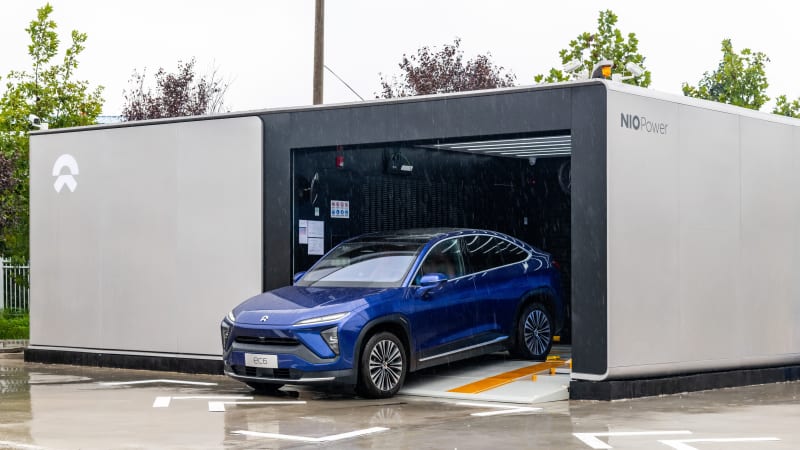Chinese automaker Nio has entered into a partnership agreement with battery behemoth CATL to collaborate on enhancing the longevity of batteries in a bid to reduce overall costs associated with electric vehicles.
The collaboration aims to integrate technologies from both entities to drive down the “full life cycle” expenses of batteries, a critical factor in the operational costs of Nio’s extensive network of battery-swapping and charging stations. William Li, the founder and CEO of Nio, emphasized the significance of addressing the longevity of batteries, describing it as a pivotal yet overlooked issue within the industry.
Li highlighted that while this challenge is imperative for Nio to tackle, it necessitates collective efforts from the entire sector to find a resolution. Currently, warranties typically cover EV batteries for eight years, with an estimated 20 million EV batteries set to reach the end of their lifespan between 2025 and 2032. Nio underscored the disparity in longevity between batteries and vehicles, along with the substantial costs associated with replacing power packs.
Through its research endeavors, Nio has managed to prolong the lifespan of swappable batteries, ensuring they retain 80% of their capacity even after 12 years. Additionally, the company unveiled a reduction of up to 33% in monthly battery rental fees for Nio users participating in a battery rental program, aiming to slash EV acquisition costs by up to 128,000 yuan ($18,000).
Following a substantial investment of over $3 billion from Abu Dhabi investor CYVN Holdings last year, Nio has been focused on accelerating its path to profitability by streamlining its workforce and postponing long-term investments to enhance operational efficiency. Despite these measures, Nio remains committed to ongoing investments in core technologies like batteries. Notably, the company has successfully commercialized 150 kWh semi-solid-state batteries for its EVs, developed in collaboration with Beijing Welion New Energy, boasting an impressive range of up to 1,000 km (620 miles).
Nio has also made significant strides in bolstering infrastructure for battery charging and swapping, currently operating 2,382 swapping stations and 21,652 public charging stations. While charging services have become profitable for Nio, the company continues to incur losses in the battery swapping segment. The adoption of swapping technology could potentially alleviate strain on power grids during peak recharging periods, although industry experts believe its mainstream adoption hinges on standardization of batteries.
Despite criticisms regarding the costliness of swapping stations, Nio contends that they offer a swift solution for EV charging while serving as energy storage facilities to enhance grid stability. Looking ahead, Nio is gearing up to introduce its second brand, Ledao, in May, as revealed by the company’s president Qin Lihong. This strategic move aligns with Nio’s initiative to target a broader consumer base by developing two sub-brands, with the project codenamed Alps for Ledao.
Currently, Nio predominantly sources its batteries from CATL while also exploring potential battery supplies from new partners such as CALB.
